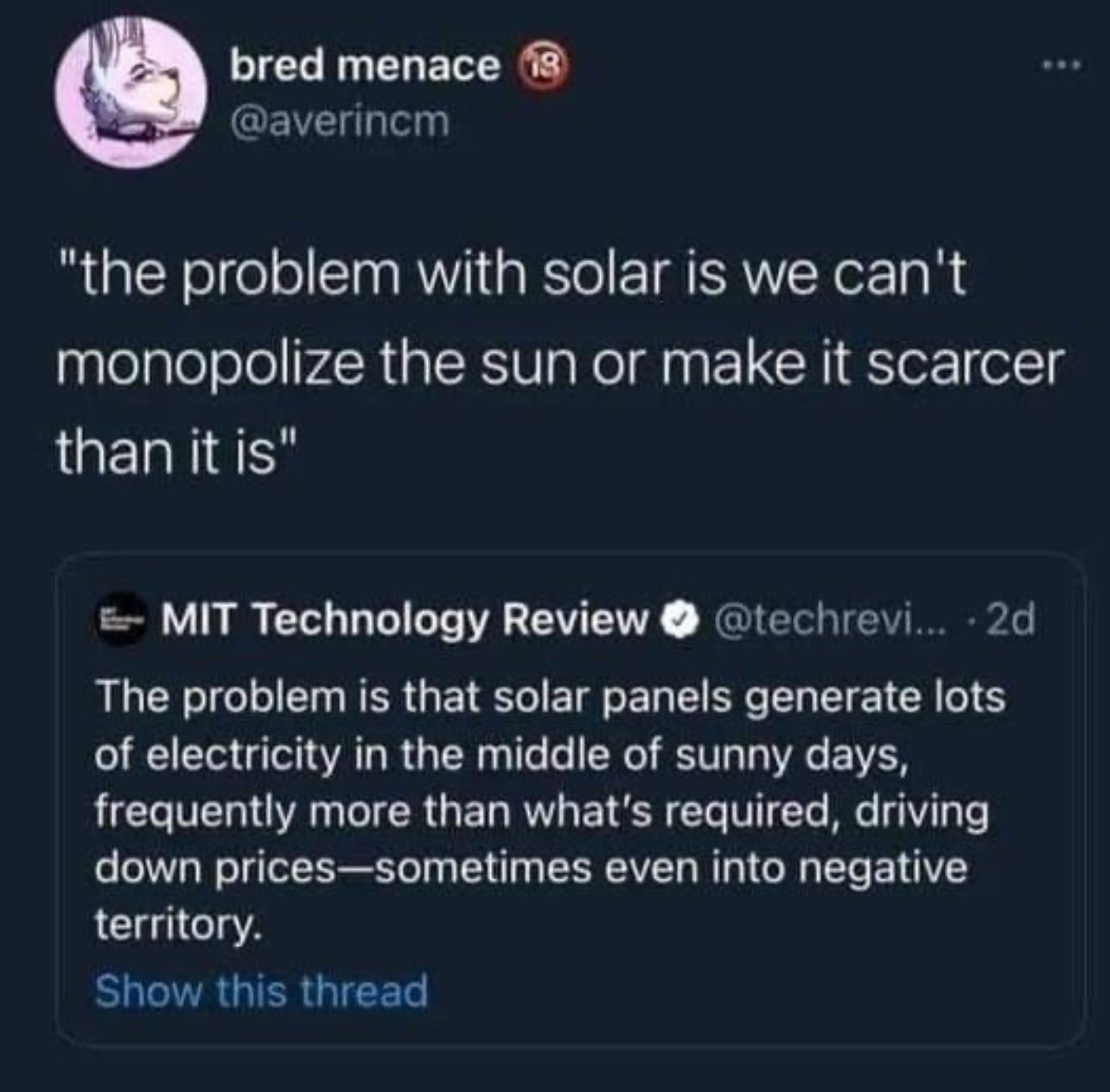this post was submitted on 02 Oct 2024
1686 points (95.6% liked)
Microblog Memes
6193 readers
2858 users here now
A place to share screenshots of Microblog posts, whether from Mastodon, tumblr, ~~Twitter~~ X, KBin, Threads or elsewhere.
Created as an evolution of White People Twitter and other tweet-capture subreddits.
Rules:
- Please put at least one word relevant to the post in the post title.
- Be nice.
- No advertising, brand promotion or guerilla marketing.
- Posters are encouraged to link to the toot or tweet etc in the description of posts.
Related communities:
founded 2 years ago
MODERATORS
you are viewing a single comment's thread
view the rest of the comments
view the rest of the comments

You need to consider more than just solar farms. There are many roof top solar systems on people's houses. That's what I'm referring to regarding logistical nightmare.
Second, if we are just going to cover up solar panels, then it really defeats the purpose of having it. A better way is to come up with ways to store this excess energy to use when there is low production and not have to depend on fossil fuels at night.
Yeah I understand storing and using the energy is obviously a better solution than to stop producing the energy. But in the short term, in the context of large solar arrays, until we have storage solutions or ways to use* the excess, covering the panels up or turning them to face the ground for a bit doesn't seem like a very big logisticical hurdle.
Are there really enough residential rooftop panels for this to even be a problem? And couldn't it be solved just by installing a battery for your home to store the excess? Again, if you could explain how this would be a logistical nightmare for my ignorant self, I'd appreciate it.